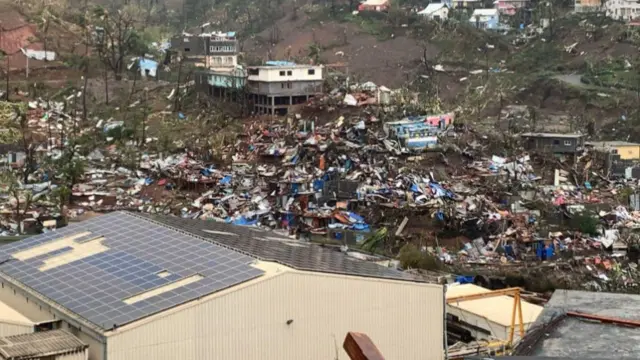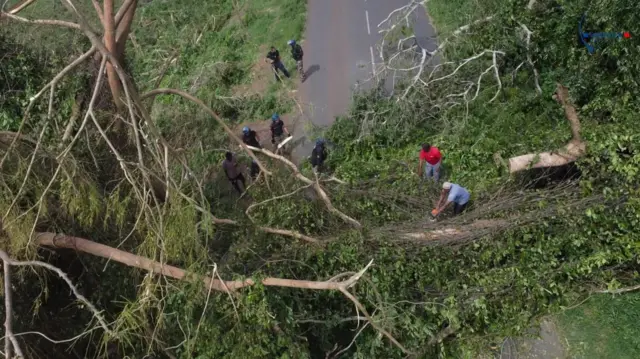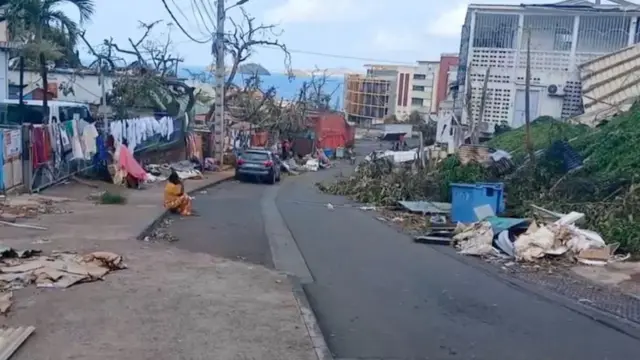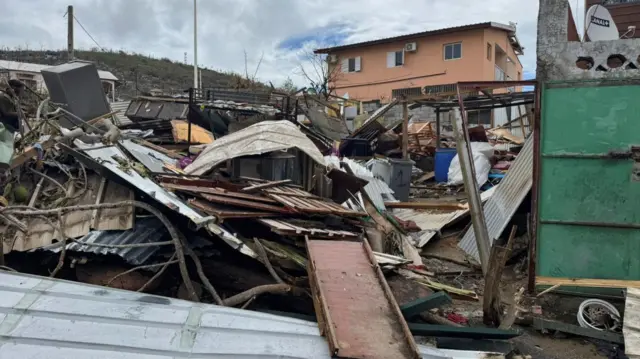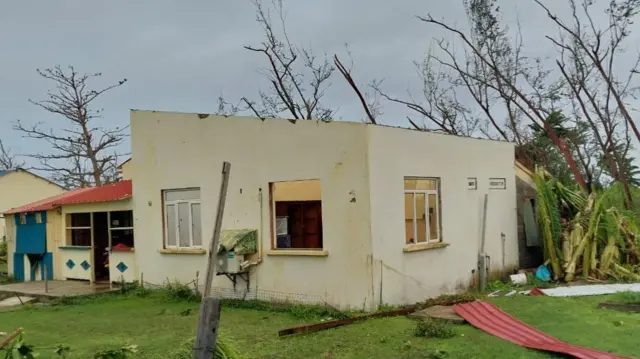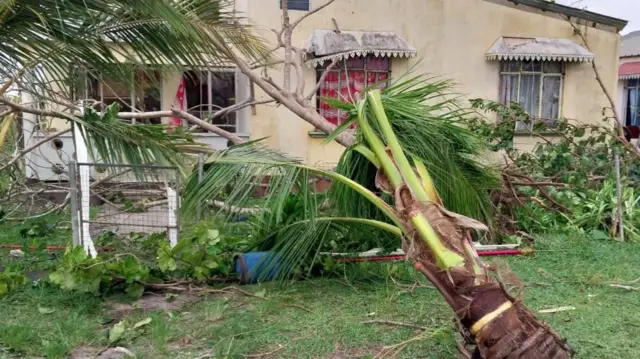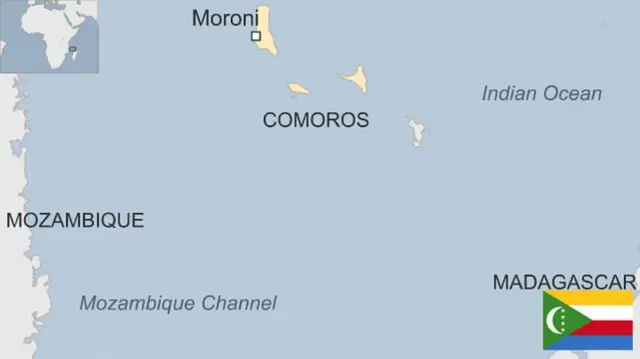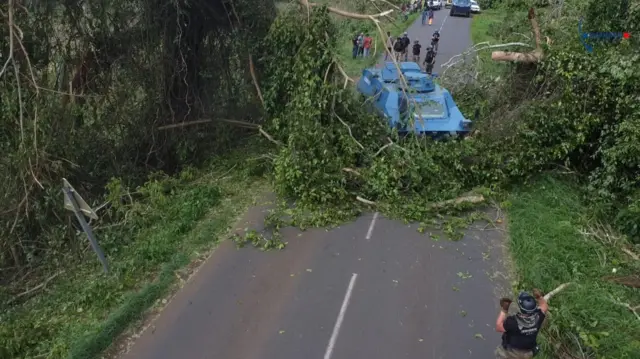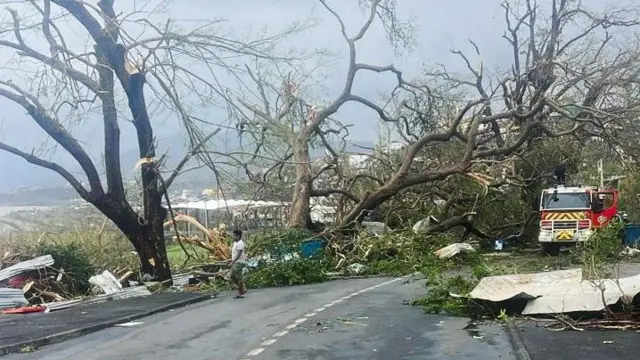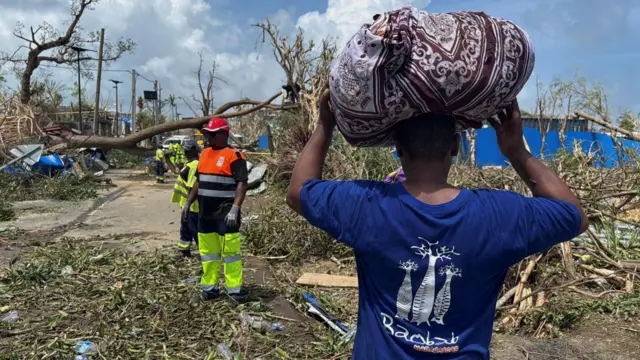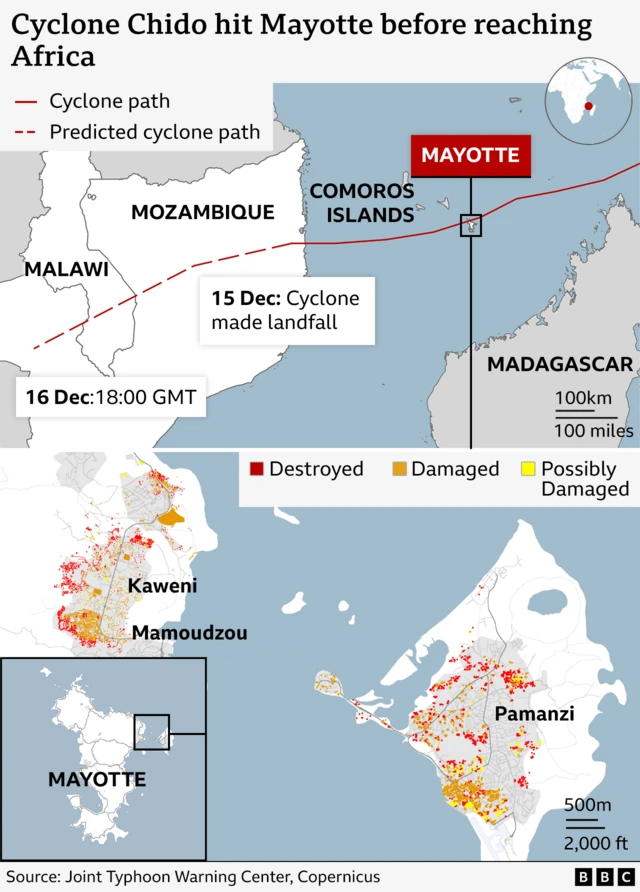Rescue operations continue after cyclone leaves 'apocalyptic scenes'published at 16:54 GMT 16 December 2024
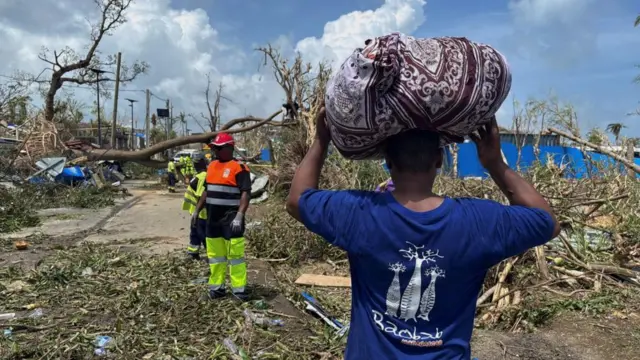 Image source, Reuters
Image source, ReutersPeople in Mayotte - a French island in the Indian Ocean - have been calling for aid after Cyclone Chido caused widespread devastation over the weekend.
Residents have spoken of "apocalyptic scenes" caused by the worst storm in 90 years to hit the territory. Footage from the isolated and impoverished island shows entire areas destroyed.
Many areas of the island are cut off, with electricity internet and phone services severely damaged - so the full extent of the damage is yet to be revealed.
Twenty people have been confirmed dead so far, but the island's most senior official has said the true death toll is likely to be much higher, likely in the hundreds - or "even several thousand".
There are also concerns about vital supplies running low, with many reporting severe shortages of food and clean water. A Belgian midwife living in the island told the BBC people "feel abandoned", as authorities attempt to ramp up delivery of vital supplies.
Chido has since been downgraded to a depression, and has moved into the African mainland after making landfall in Mozambique.
We'll shortly be closing our live coverage, but you can continue to follow the latest developments on the ground in Mayotte in our news story.
